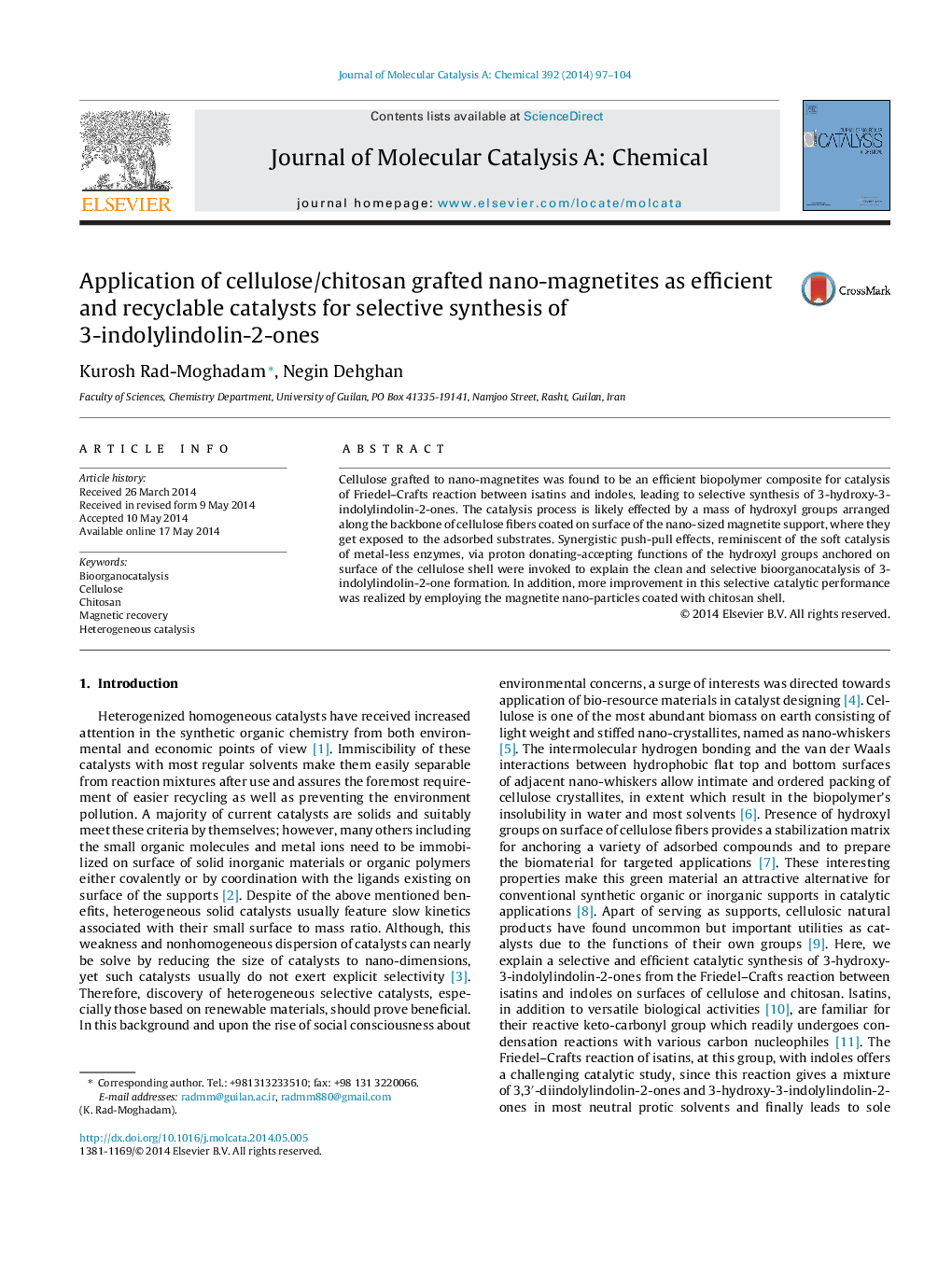| کد مقاله | کد نشریه | سال انتشار | مقاله انگلیسی | نسخه تمام متن |
|---|---|---|---|---|
| 65141 | 48384 | 2014 | 8 صفحه PDF | دانلود رایگان |

• Fine and naturally consistent cellulosic-grafted nano-magnetites were prepared.
• A selective catalytic synthesis of 3-indolyl-3-hydroxy-2-oxindoles was achieved.
• The catalysis is a typically synergistic proton donating-accepting of hydroxyl groups.
• The efficiency of catalyst retains even after several recycling.
Cellulose grafted to nano-magnetites was found to be an efficient biopolymer composite for catalysis of Friedel–Crafts reaction between isatins and indoles, leading to selective synthesis of 3-hydroxy-3-indolylindolin-2-ones. The catalysis process is likely effected by a mass of hydroxyl groups arranged along the backbone of cellulose fibers coated on surface of the nano-sized magnetite support, where they get exposed to the adsorbed substrates. Synergistic push-pull effects, reminiscent of the soft catalysis of metal-less enzymes, via proton donating-accepting functions of the hydroxyl groups anchored on surface of the cellulose shell were invoked to explain the clean and selective bioorganocatalysis of 3-indolylindolin-2-one formation. In addition, more improvement in this selective catalytic performance was realized by employing the magnetite nano-particles coated with chitosan shell.
Figure optionsDownload high-quality image (131 K)Download as PowerPoint slide
Journal: Journal of Molecular Catalysis A: Chemical - Volume 392, October 2014, Pages 97–104